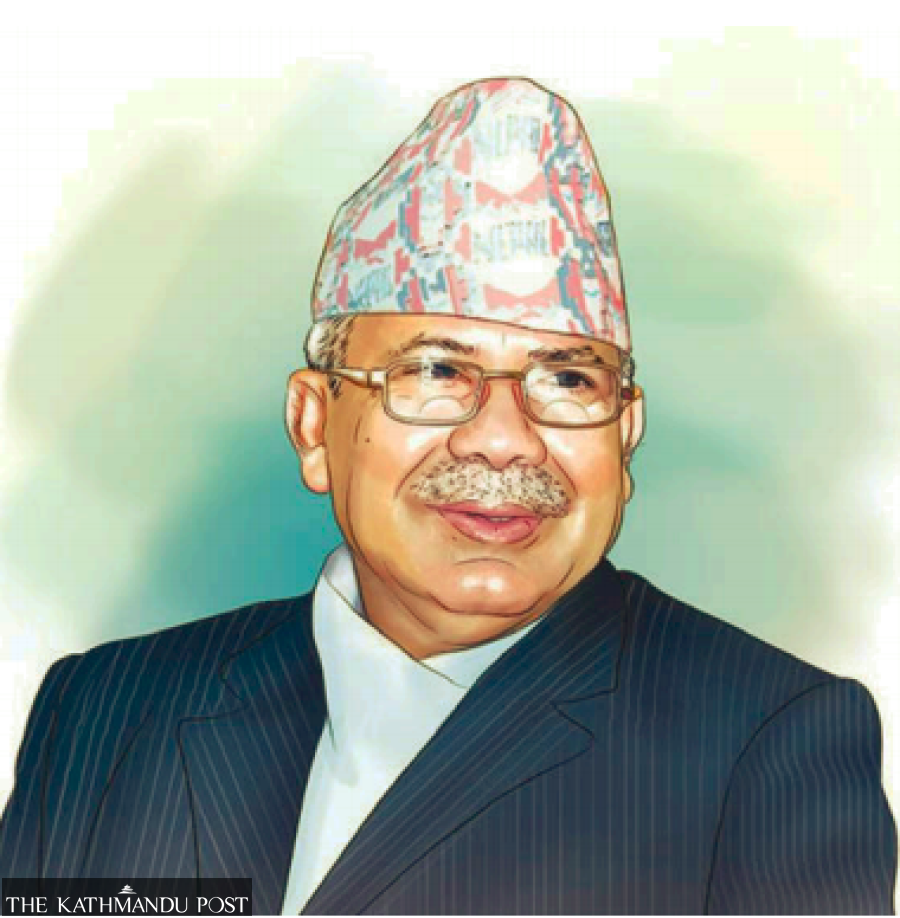National
Former PM Madhav Nepal, then ministers charged in Patanjali land scam
CIAA files corruption case at Special Court against the former prime minister and 92 others.
Matrika Dahal
Former Prime Minister and CPN (Unified Socialist) chair Madhav Kumar Nepal has been charged with corruption in connection with the Patanjali land scam.
The Commission for the Investigation of Abuse of Authority (CIAA) on Thursday filed a corruption case at the Special Court against Nepal and other defendants involved in the land misappropriation case.
The anti-graft body has demanded compensation of Rs185.5 million from Nepal for causing losses to the state coffers.
The CIAA has also charged then law minister Prem Bahadur Singh, then land reform minister Dambar Bahadur Shrestha, then chief secretary Madhav Prasad Ghimire, then Secretary at the Ministry of Land Reform Chhabiraj Pant; Shaligram Singh, head of Patanjali Yogpeeth and Ayurveda Company Nepal, secretaries and other top officials.
The case involves alleged misappropriation of land acquired for Patanjali Yogpeeth Nepal under government exemptions for land ownership ceiling.
On February 1, 2010, the Nepal-led Cabinet approved the purchase of 815 ropani (1 ropani equals 0.0509 hectares) of land in Banepa, Kavre under the ceiling exemption for purposes including yoga centres, Ayurvedic institutes, and the herbal industry.
The same Cabinet meeting also approved the purchase of land under ceiling exemption—75 bighas (1 bigha equals 0.677 hectares) in Dang, 300 ropanis in Lamjung, 250 ropanis in Syangja, 15 bighas in Chitwan, 25 bighas in Dhanusha, 150 ropanis in the Kathmandu Valley, and 40 bighas in the Bara-Parsa area—within five years.
However, no investigation has been carried out into the transactions involving the other plots approved under the exemption.
After receiving Cabinet approval, Patanjali’s Nepal chief Shaligram Singh, purchased 593 ropanis, 5 annas, and 3 paisas of land in the areas of Nasikasthan, Sanga, Mahendrajyoti, and Chalal Ganeshsthan in Banepa.
The decision-making process to grant approval for purchasing land under the ceiling exemption involved then prime minister Madhav Kumar Nepal, then Land Reform Minister Dambar Shrestha, then chief secretary Madhav Ghimire, then secretary Chhabiraj Pant, along with other high-ranking officials and employees.
Within a month of receiving approval to purchase land under the ceiling exemption, on February 19, 2010, Patanjali’s Nepal chief Shaligram submitted an application to the then Land Reform Minister Shrestha seeking permission to sell the land acquired under the exemption.
On March 16 of the same year, citing “as per Prime Minister Nepal’s instruction,” then minister Shrestha took the proposal to the Cabinet to allow Patanjali to sell the land obtained through the ceiling exemption.
Three days later, the Cabinet decided to approve the sale of the exempted land. However, on March 30, 2010, then director general of the Land Reform Department Keshar Bahadur Baniya, sent a letter to the ministry stating that the Cabinet’s decision was illegal and could not be implemented.
On April 8, 2010, the Cabinet decided to seek clarification from director general Baniya, accusing him of challenging the approval given for the sale of land exempted from the land ceiling. The next day, to support the planned sale of the exempted land, Baniya was allegedly removed from his position as director general, and Joint Secretary Jit Bahadur Thapa of the ministry was appointed in his place.
On the very same day he assumed the role, Thapa sent a letter to the Kavre Land Revenue Office granting approval for the sale of the land exempted from the land ceiling.
On June 25, 2010, Patanjali sold 353 ropani and 15 aana of land to Kasthamandap Business Homes Pvt Ltd. The investigation has also revealed financial irregularities in land transactions.
When Patanjali sold the land in Banepa, the recorded price was Rs42.25 million. Government records show that Patanjali later bought 104 ropani, 1 aana, 2 paisa, and 1 dam of land in Dhulikhel for Rs10.75 million. However, an official from the CIAA alleges that the actual transactions exceeded Rs400 million, with the declared amounts deliberately reduced to evade taxes.
Nepal, who was senior leader of the CPN-UML at the time, was prime minister from May 25, 2009 to February 5, 2011. He later quit the party and formed the CPN (Unified Socialist) in 2021.




 22.12°C Kathmandu
22.12°C Kathmandu













